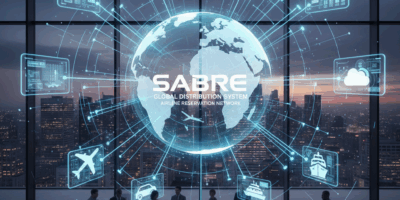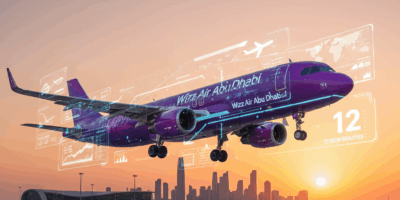Understanding Travel Management Systems
Travel management systems are integral tools for modern businesses. They streamline booking processes, expense management, and policy compliance. They enhance efficiency and cut costs associated with corporate travel. Here’s an in-depth look into how these systems work and their benefits.
Core Components
Travel management systems typically include several key components:
- Booking Engine: Facilitates flight, hotel, and car rental bookings.
- Expense Management: Tracks and manages travel expenses.
- Policy Compliance: Ensures bookings adhere to corporate travel policies.
- Reporting Tools: Offers detailed reports on travel spending and trends.
These components work together to create a seamless travel experience for employees and administrators.
Booking Engine
The booking engine is the heart of a travel management system. It integrates with major travel service providers to offer a variety of options. Employees can book flights, hotels, and car rentals all in one interface. The system provides real-time data on availability and prices.
Travelers benefit from customizable search options. They can filter results based on price, location, or preferred airlines. This functionality saves time and offers flexibility. Additionally, corporate rates and discounts are automatically applied, ensuring cost-effective bookings.
Expense Management
Managing travel expenses can be daunting. A travel management system simplifies this process. It records every expense related to the trip. This includes flight costs, hotel bills, meals, and other incidentals. Employees can upload receipts directly into the system, reducing paperwork.
Automated expense reports are generated, showing a detailed breakdown of spending. This data helps in budget planning and identifying cost-saving opportunities. Features like credit card integration and mobile access make the process even more efficient.
Policy Compliance
Ensuring compliance with corporate travel policies is crucial. Travel management systems automate this aspect. They embed company policies within the booking process. Employees receive notifications if their choices violate these policies. Alternative options within policy are suggested.
Having a pre-set approval workflow is another feature. Travel requests can be routed through managers for approval before finalizing. This ensures all travel adheres to the company’s guidelines. Reducing non-compliance instances saves the company from unnecessary expenses.
Reporting Tools
The reporting tools in travel management systems offer valuable insights. They provide comprehensive reports on various travel metrics. These include spend analysis, booking trends, and compliance rates. Customizable dashboards allow administrators to view data in different formats.
Such reports aid in strategic decision-making. They identify spending patterns and potential areas for cost reduction. Monthly or quarterly reports can highlight top spenders, frequently visited locations, and much more. This transparency ensures efficient management of travel expenditure.
Integration Capabilities
Modern travel management systems offer extensive integration capabilities. They can seamlessly integrate with existing HR and finance systems. This ensures synchronization of employee data and travel policies. Expense data can be automatically updated in the company’s financial records.
Furthermore, integration with external services like travel insurance providers enhances the system. Employees can get travel insurance quotes and purchase policies directly through the travel management system. This all-in-one approach reduces the hassle of using multiple platforms.
User Experience
Travel management systems prioritize user experience. They offer intuitive interfaces and mobile applications. Employees can manage their travel plans on the go. Booking accommodations or submitting expenses from a smartphone is straightforward.
Support services are another significant aspect. Many systems offer 24/7 support to address any travel-related issues. Whether it’s changing a flight or resolving a booking error, help is readily available. This constant support enhances the overall travel experience for employees.
Cost Savings
Implementing a travel management system can lead to significant cost savings. By negotiating corporate rates with airlines and hotels, companies can reduce travel expenses. Real-time expenses tracking ensures close monitoring and control over the budget.
Policy compliance features prevent out-of-policy expenditures. Automated reports and analysis help in identifying and eliminating unnecessary spending. Overall, a travel management system can be a powerful tool in managing and reducing a company’s travel costs.
Compliance and Security
Compliance and security are paramount in travel management systems. They ensure compliance with local and international regulations. Secure data handling protocols protect sensitive employee and financial information.
Many systems are GDPR compliant, ensuring data privacy. Regular system audits and updates keep the security robust. Employees have peace of mind knowing their personal and financial details are safe.
Customization Options
Customization is a key feature of travel management systems. They can be tailored to meet specific company requirements. Whether it’s customizing approval workflows or travel policies, flexibility is provided.
Customizable reporting tools allow companies to generate reports specific to their needs. Tailored dashboards display relevant travel data. This ensures that the system is aligned with the company’s goals and objectives.
Sustainability Initiatives
Many travel management systems now incorporate sustainability initiatives. They track the carbon footprint of corporate travel. Companies can then make more environmentally conscious decisions. This includes choosing eco-friendly travel options or offsetting carbon emissions.
Some systems partner with organizations to offer carbon offset programs. This integration promotes corporate social responsibility. Increasingly, companies are adopting these features to enhance their sustainability efforts.
Real-World Applications
Various industries benefit from travel management systems. In consulting, where frequent travel is expected, these systems streamline operations. They handle large volumes of bookings and expenses efficiently.
Tech companies use travel management systems to manage travel for conferences and client meetings. This helps in keeping travel costs under control and ensuring policy compliance.
Non-profits and educational institutions also leverage these systems. They manage travel grants and scholarships efficiently. Expense tracking and reporting are made simple, ensuring transparency and accountability.
Trends and Developments
Technological advancements continue to shape travel management systems. AI-powered booking engines offer personalized recommendations. Machine learning algorithms predict travel trends and suggest cost-saving measures.
Blockchain technology is enhancing security measures. Smart contracts and secure transactions ensure data integrity. Virtual and augmented reality tools are being explored for travel planning and training purposes.
Mobile applications are becoming more sophisticated. They offer real-time updates about travel plans and itinerary changes. Integration with wearable technology for a seamless travel experience is another emerging trend.
Challenges and Solutions
Implementing a travel management system is not without challenges. Initial setup costs can be high. However, the return on investment through cost savings and efficiency outweighs this expense in the long run.
Resistance to change is common among employees. Proper training and clear communication can address this. Demonstrating the system’s benefits encourages acceptance and utilization.
Data security is a critical concern. Ensuring that the system complies with data protection laws is necessary. Regular security audits and updates mitigate risks.
Best Practices
Successful implementation of a travel management system involves several best practices. Engaging stakeholders from the start ensures their buy-in and active participation. Understanding the company’s unique travel needs is fundamental.
Setting realistic goals and expectations guides the process. Regularly reviewing and updating travel policies keeps them relevant. Gathering and analyzing feedback helps in continuous improvement.
Training programs for employees on using the system efficiently reduce resistance and increase adoption. Ensuring open communication channels for addressing concerns is vital.
Choosing the Right System
Selecting the right travel management system requires careful consideration. Companies must assess their needs and evaluate different solutions. Factors like user-friendliness, integration capabilities, and cost should be considered.
Reviewing case studies and client testimonials can provide insights into the system’s performance. Many providers offer trial versions or demos. These can help in understanding how the system fits into the company’s workflow.
Consulting with industry experts and conducting a thorough analysis ensures that the chosen system aligns with the company’s objectives and requirements.
“`



